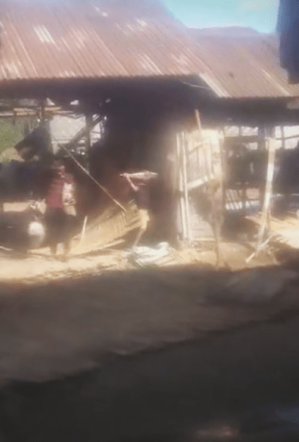In Savannakhet Province’s Khampou village, Assaphone District, the village deputy village chief and local security officials on Sunday (Oct. 1) disrupted the service and ordered church leader Sard Onmeunsee and 17 other Christians to stop the worship, according to Human Rights Watcher for Lao Religious Freedom (HRWLRF).

On the supposition that the church members had angered spirits or gods by leaving them for Christianity, the officials also threatened to impose large fines on the Christians if other people in the village became ill or died. In addition, two Christians from a nearby village who had come to the service were threatened with automatic arrest if they rejoined the church for worship, according to HRWLRF.
After a family in the animist village became the first Christians there in 2019, about 180 Lao villagers accepted Christ over the next two years, HRWLRF stated.
“Thus began pressures and threats from the local government upon Christians, coercing them to give up their religious faith,” the group stated. “The local government subjected Christians to intimidations, threats, and coercion throughout 2022 and 2023, forcing them to abandon their Christian religion until today; only three families (15 Christian believers) from around 180 Christians remained in the Christian faith, led by Mrs. Sard Onmeunsee.”
Home Destroyed
In Salavan Province, a family of seven remains barred from returning to Tabong village, Sa Mouay District, after village governing and security officials on Sept. 3 destroyed their house and placed them in arbitrary detention at a police station for refusing to renounce their faith, according to HRWLRF.
“They are still being barred by village authorities from returning to their village, Tabong,” Sirikoon Prasertsee, director of HRWLRF, told Morning Star News. “Currently they are residing at a temporary shelter at a government school in the Sa Mouay District. They will be allowed back into the village if they give up their Christian faith.”
Tabong officials barred the family’s three school-age children from attending school, according to HRWLRF.
“The family has no home to which to return, and they are facing the risk of starvation,” the group said in a statement.
The Lao family members were identified only as Umvang, 46; his wife Ter, 27; brother Vuang, 30; Alin, 10; Soulin, 7; Rebecca, 3; and Veoy, 10.
Article 30 of the Lao Constitution recognizes the right of citizens “to believe or not to believe in religions.” The U.N. International Covenant on Civil and Political Rights (Article 18), to which Laos is a signatory, also recognizes the right to freedom of religion, stipulating that the right to manifest, individually or in community with others and in public or private, religion or belief in worship, observance, practice and teaching cannot be impaired by any act, process or power of coercing.
In addition, the U.N. Convention on the Rights of the Child, ratified by the government of Laos in 1991, requires the government to ensure, respect and protect the rights of the Lao children, HRWLRF noted.
“By the acts of aggression in Tabong village, the village authorities have violated Articles 2, 14, 16, 19, 28, and 37 of the U.N. Convention on the Rights of the Child,” the group stated. “While the Lao government recognizes the right of the Lao national to freedom of religion or belief, they however restrict freedom to that religious right and punish the Lao family who insist on exercising their right to religious freedom to believe in the Christian religion.”
The HRWLRF urged the Lao government to respect the Lao Constitution.
Laos ranked 31st in Open Doors’ 2023 World Watch List (WWL) of the countries where it is most difficult to be a Christian, saying Communist authorities consider most church meetings “illegal gatherings,” and Christians live under intense scrutiny.
“In Laos, some churches are registered and heavily monitored, but others cannot get permission to meet and have to operate secretly,” the WWL report stated. “The leaders of unregistered churches have been arrested and held for as long as a year; their families and churches have to pay huge sums of money for their release. In most cases, local authorities are the source of persecution, frequently cooperating with the community and families.”





